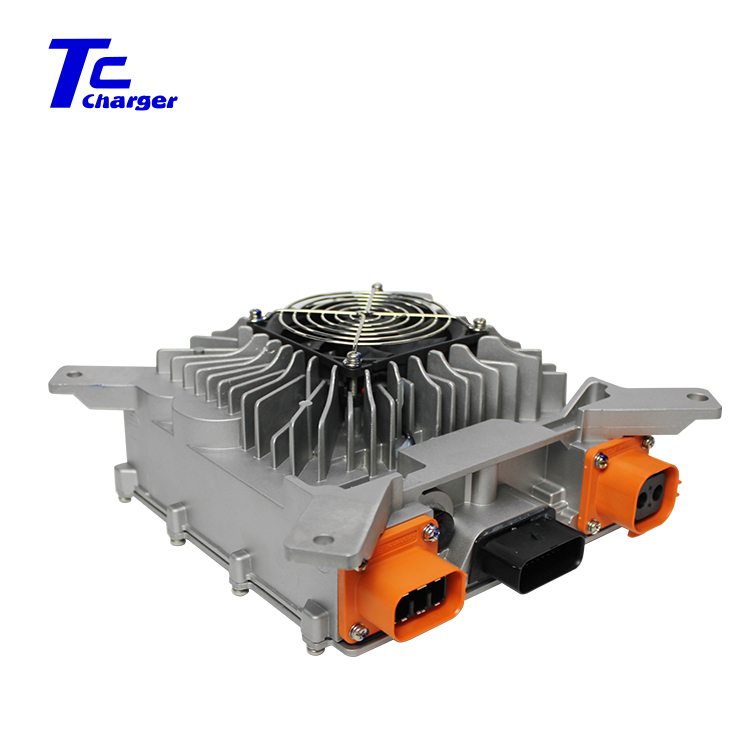The Future of Electric Vehicles: Understanding On-Board Chargers
Jul 01,2024 | TCcharger

As electric vehicles (EVs) continue to revolutionize the automotive industry, one crucial component that often goes unnoticed is the on-board charger (OBC). While much of the focus tends to be on battery capacity and range, the OBC plays a pivotal role in ensuring that your EV is ready to go when you are. In this blog, we'll dive into what an on-board charger is, how it works, and why it's essential for the future of electric mobility.
What is an On-Board Charger?
An on-board charger is a device installed within an electric vehicle that converts alternating current (AC) from the power grid into direct current (DC) that can be stored in the vehicle's battery. This conversion is essential because EV batteries can only store DC power, while most charging stations supply AC power.
How Does an On-Board Charger Work?
The process starts when you plug your EV into a charging station. The AC power from the grid enters the vehicle through the charging port. The on-board charger then takes this AC power and converts it into DC power, which is then fed into the battery pack for storage. The efficiency and speed of this conversion process are critical factors that determine how quickly your vehicle can be charged.
Types of On-Board Chargers
-
Single-Phase Chargers: These are the most common type and are typically found in residential settings. They are slower compared to three-phase chargers but are sufficient for overnight charging.
-
Three-Phase Chargers: These are more powerful and are usually found in commercial or industrial settings. They can charge an EV much faster than single-phase chargers, making them ideal for quick top-ups during the day.
Why Are On-Board Chargers Important?
-
Convenience: Having an on-board charger means you can charge your EV from any standard electrical outlet, making it incredibly convenient for daily use.
-
Efficiency: Modern on-board chargers are designed to be highly efficient, minimizing energy loss during the conversion process. This not only saves electricity but also reduces charging times.
-
Versatility: On-board chargers allow for flexibility in charging options. Whether you're at home, at work, or on the road, you can easily find a compatible charging station.
-
Cost-Effectiveness: By enabling the use of existing electrical infrastructure, on-board chargers help reduce the overall cost of EV ownership. There's no need for specialized charging equipment, which can be expensive to install and maintain.
The Future of On-Board Chargers
As technology advances, we can expect on-board chargers to become even more efficient and powerful. Innovations such as bidirectional charging, where the vehicle can also supply power back to the grid, are on the horizon. This could transform EVs into mobile energy storage units, providing additional benefits to both owners and the broader energy grid.
In conclusion, while on-board chargers may not receive as much attention as batteries or motors, they are an indispensable part of the electric vehicle ecosystem. As we move towards a more sustainable future, understanding and appreciating the role of on-board chargers will become increasingly important.



